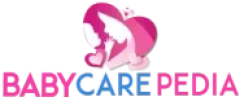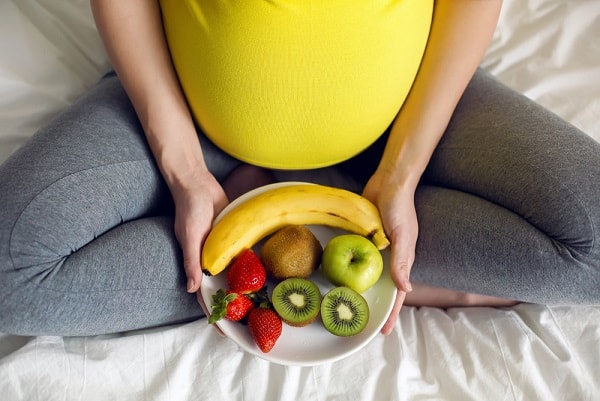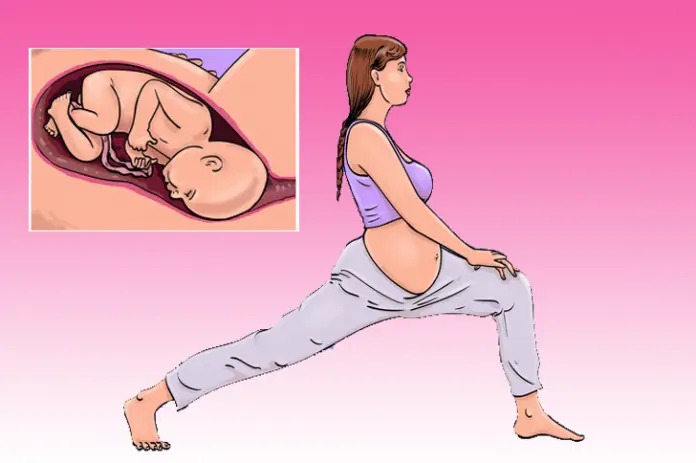What To Eat While Pregnant? Eating a proper diet when pregnant is just as crucial as a pregnancy diet.
But many women find it challenging to eat healthy because they didn’t before they became pregnant, or they have overpowering cravings that are more junk food than nutritious foods.
But you can eat well and satisfy your cravings when pregnant with some planning.
What To Eat While Pregnant? Here are some foods to eat when pregnant
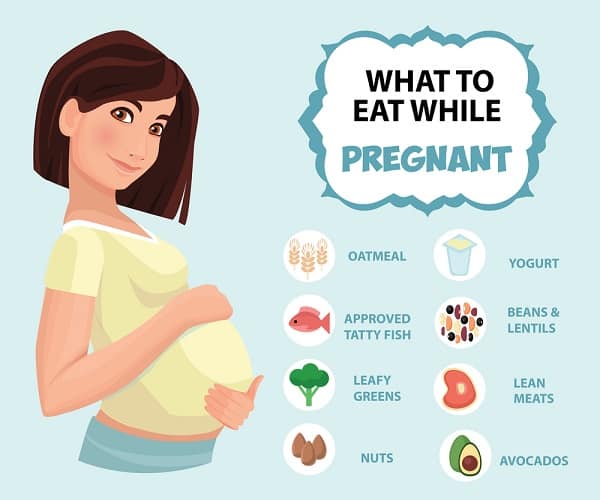
If you are wondering what to eat while pregnant, a well-balanced pregnancy diet that contains foods from the five food groups can be used as your guide. These foods include:
- Proteins
- Starches and Whole grains
- Dairy products
- Fruits
- Vegetables
Even if you cannot the recommended portions daily, especially if you are nauseous during the day, stocking your kitchen with nutritious foods will prompt you to eat them when you can during your pregnancy diet.
This will also give you the variety you need so that you do not become bored and begin eating more junk food.
Examples of foods from the five food groups include:
- Proteins: Red meat, beans, pork, chicken, certain types of fish, and nuts
- Starches and Whole grains: Oatmeal cereals, potatoes, rice, beans, herbs, spices, soups, and bread
- Dairy products: Milk, yogurt, certain types of cheese, and soy products
- Fruits: Try to buy fresh fruits as opposed to dried ones. Fresh fruits will contain more vitamins and minerals.
- Vegetables: Again, try to buy fresh vegetables instead of canned or frozen vegetables.
Make your choices wisely, and you can provide nutrition for yourself and your baby.
Foods to Avoid During Pregnancy
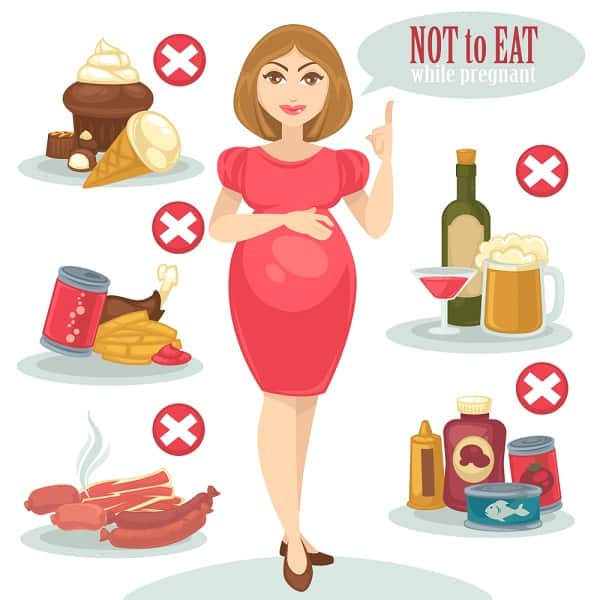
There are also foods that you will want to avoid during pregnancy. These foods may cause you to become sick and harm your baby.
Soft cheeses: Soft cheeses that contain listeria can cause listeriosis, which could cause miscarriages.
This bacterium is found in unpasteurized foods or foods not appropriately pasteurized before refrigeration. Other foods that could contain listeria include:
- Soft cheeses – brie, feta, blue-veined cheeses
- Meats that have not been thoroughly cooked
- Cold cuts
- Unpasteurized milk products
Raw eggs and meat
If you are baking or preparing food, you should be careful not to ingest foods that are not cooked accidentally. There are several bacterial infections that you can get that could harm your baby:
- Salmonella
- Botulism
You can reduce your exposure to these infections by practicing the following safety measures:
- Always wash your hands after touching uncooked meat.
- Haw all foods before cooking them.
- Always wipe off cooking surfaces after cutting up meat products and fruits and vegetables.
- Use clean cooking utensils for each food being prepared.
- Do not buy dented cans.
- Do not refreeze food once it has been thawed.
- Only reheat foods once after cooking them.
- Discard uneaten food after three days in the refrigerator.
- Do not leave dairy products on the counter for long periods.
Raw Vegetables that have been picked from the garden
If you have outdoor cats and a vegetable garden, you should not eat raw vegetables from the garden as the cats could have unintentionally contaminated the soil. Infected soil or cat boxes could cause toxoplasmosis.
Toxoplasmosis is a bacterial infection that cats spread through their feces. Most people who own cats will get infected because they have changed the cat box.
The symptoms resemble the flu and are usually not harmful. But if you are pregnant, this infection could harm the baby. Do not clean the cat box while pregnant, just in case.
Caffeine: You should avoid caffeinated foods and beverages as caffeine can raise blood pressure and cause stomach problems.
The researchers at NIH noted that caffeine is believed to cause blood vessels in the uterus and placenta to constrict, which could reduce the blood supply to the fetus and inhibit growth. so it is best foods to avoid it during your pregnancy.

Fish: While fish are high in omega-3 acids, protein, and other nutrients, you should avoid certain types of fish because they may contain high levels of mercury and a pollutant called polychlorinated biphenyls (PCBs). Types of fish to avoid include Sharks, tilefish, mackerel, swordfish, bluefish, salmon, pike, trout, and bass.
Even though not all the fish on the list will be contaminated, you should ask your health department about lakes and streams in your area that may be contaminated. It would help if you did not eat fish caught in these lakes and streams.
Other foods to avoid during pregnancy
Plenty of foods are safe for you to eat, but when eating out, you will have to ask about certain foods and avoid them totally. Foods like Liver, Sprouts, and Artificial sweeteners.
The Cause of Pica Syndrome
Pica is a term used to describe cravings that are not beneficial to the baby’s development and health. While cravings are common during pregnancy, those with pica will crave substances that are not considered healthy. Pica cravings include dirt, clay, ice chips, paint chips, wax, starch, paste, antacids, and chalk.
These substances can rob the body of nutrients it needs for itself and your baby. Even though these cravings will usually disappear after the birth of your baby, the damage that could be done may be permanent.
Pica cravings have unknown causes, but many seem to think that they affect women who are anemic. If you begin to crave substances that are not food, you should ask your care provider what can be done to prevent the digestion of these substances.
Many women are embarrassed about their Pica cravings, but they should not be because many suffer from them.
Eating Organic Foods during pregnancy diet.
Many people eat organic foods during their pregnancy to prevent the ingestion of chemicals and pesticides used to protect the food from insects and other environmental issues.
Also, many processed foods have growth hormones that can get into the body and cause health issues. You should if you have been eating organic foods and would like to continue during your pregnancy.
Just be careful to avoid certain fresh foods, including sprouts and certain types of fish and cheese. Always cook food thoroughly to avoid bacterial infections. While eating raw vegetables is the best way to get the most nutrients, many people will par-cook their vegetables to be safe.
Since organic vegetables do not contain pesticides, you should be fine. Always wash all fruits and vegetables after bringing them home. This will make you feel safer and remove any chemicals that may have gotten on them.
Eating a Vegetarian diet.
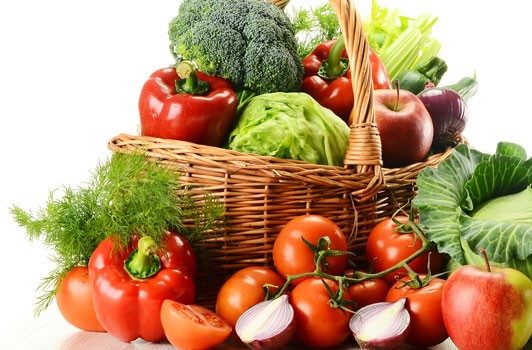
If you are vegetarian, you can still provide enough protein for your baby when pregnant by researching and eating foods that will give you enough protein during the day.
Since protein will help in the development of your baby’s cells, it is essential to get enough each day. Foods that are high in protein include dairy, grains, beans, rice, tofu, green vegetables, fruit, nuts, and seafood.
If you are vegan and do not eat dairy or seafood, you will need to cook meals with plenty of rice, beans, and tofu.
Eating enough fruits and vegetables is another source of protein and many other vitamins and minerals. Making good choices and eating enough daily will give your baby the protein needed for proper development.
What To Eat While Pregnant During Three Trimesters?
Your eating habits may change over nine months of pregnancy, so you must alter how you eat to ensure your baby is getting what it needs.
First-trimester Pregnancy Diet
During your first trimester, you may experience morning or nighttime nausea. This may curb your appetite.
Remember that your baby’s organs will be developed during the first trimester, so the baby must get enough nutrition to develop properly. If you are suffering from nausea, you should try the following:
- Eat smaller meals during the day
- Eat comfort foods, including oatmeal, ginger tea, and soup
- Do not eat foods whose smells make you nauseous
- Try breathing exercises when nauseous to end the feelings
- Prepare foods in advance so that you can heat them quickly when not feeling well
Second-trimester Pregnancy Diet
Your second trimester may be easier than your first trimester. You will feel more comfortable with your body, your baby will be growing, and food cravings may begin.
You will be hungry, but you should ensure that you eat foods high in protein, vitamins, and minerals.
- During your second trimester, you should:
- Eat three or four meals a day
- Snack on nutritious foods
- If you have cravings, try to keep them to a minimum
- Prepare foods using fresh ingredients when possible
- Drink a lot of water
Third-trimester Pregnancy Diet

This is your final trimester. You may begin to feel fatigued more often, and you will need your rest. Preparing food may become difficult. It would be best if you stick to your diet as much as possible even though you will not want to cook.
During your third trimester, you should:
- Prepare food in advance
- Eat six smaller meals during the day so that you can maintain your energy
- Keep eating foods that are high in protein
- Maintain your cravings
- Keep hydrated
Eating correctly during the three stages of pregnancy will help when you have cramps, nausea, back pain, or stomach aches.
Find what to eat while pregnant and foods that you can prepare quickly but are still nutritious. If you are having difficulty, you should consult your care provider; they will give you a list of acceptable foods.
Fresh fruit and vegetables taste good and provide enough vitamins and minerals to keep you and your baby healthy.
